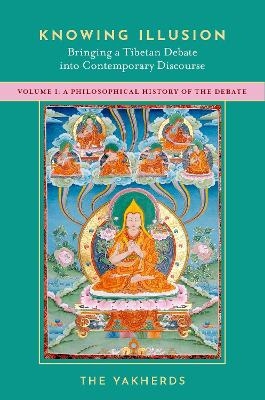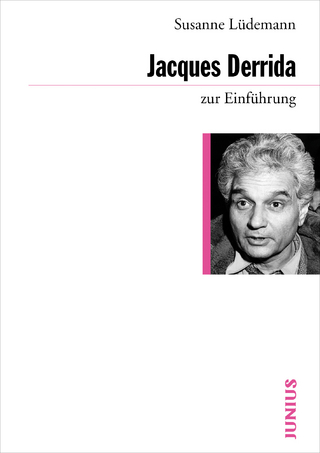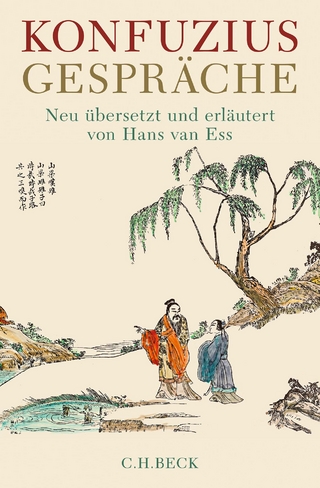
Knowing Illusion: Bringing a Tibetan Debate into Contemporary Discourse
Oxford University Press Inc (Verlag)
978-0-19-760362-8 (ISBN)
Tsongkhapa (1357-1419) is by any measure the single most influential philosopher in Tibetan history. His articulation of Prasangika Madhyamaka, and his interpretation of the 7th Century Indian philosopher Candrakirti's interpretation of Madhyamaka is the foundation for the understanding of that philosophical system in the Geluk school in Tibet. Tsongkhapa argues that Candrakirti shows that we can integrate the Madhyamaka doctrine of the two truths, and of the ultimate emptiness of all phenomena with a robust epistemology that explains how we can know both conventional and ultimate truth and distinguish truth from falsity within the conventional world.
The Sakya scholar Taktsang Lotsawa (born 1405) published the first systematic critique of Tsongkhapa's system. In the fifth chapter of his Freedom from Extremes Accomplished through Comprehensive Knowledge of Philosophy, Taktsang attacks Tsongkhapa's understanding of Candrakirti and the cogency of integrating Prasangika Madhyamaka with any epistemology. This attack launches a debate between Geluk scholars on the one hand and Sakya and Kagyu scholars on the other regarding the proper understanding of this philosophical school and the place of epistemology in the Madhyamaka program. This debate raged with great ferocity from the 15th through the 18th centuries, and continues still today.
The two volumes of Knowing Illusion study that debate and present translations of the most important texts produced in that context. Volume I: A Philosophical History of the Debate provides historical and philosophical background for this dispute and elucidates the philosophical issues at stake in the debate, exploring the principal arguments advanced by the principals on both sides, and setting them in historical context. This volume examines the ways in which the debate raises issues that are relevant to contemporary debates in epistemology, and concludes with two contributions by contemporary Tibetan scholars, one on each side of the debate.
The Yakherds is a collective of scholars in Philosophy and Buddhist Studies based in the USA, India, Australia, Nepal, and Germany, and comprises both Western and Tibetan scholars. Between them, they have translated, edited, and written over 70 books and several hundred articles and reviews, including numerous important translations of Tibetan philosophical texts and books on Buddhist philosophy.
Preface
Introduction
Chapter 1. Truths and Polemics: Taktsang's Presentation of Madhyamaka and Tibetan Responses
Chapter 2. Reading Candrakirti
Chapter 3. The Philosophical Issues at Stake
Chapter 4. Khedrupjé on Madhyamaka Epistemology
Chapter 5. Taktsang's Madhyamaka
Chapter 6. The Gelukpas and their Opponents
Chapter 7. Tsongkhapa, Buddhahood, and Epistemic Authority: An Initial Reply to Taktsang's Charge
Chapter 8. Panchen Losang Chökyi Gyaltsen's Response to Taktsang
Chapter 9. Tenets Anyone? Jamyang Shepa's Polemical Response to Taktsang's Presentation of Madhyamaka
Chapter 10. From Three Contexts to None: The Karmapas' Radical Reading of Taktsang Lotsawa and the Middle Way
Chapter 11. Unforgotten Dreams: Purchok's Rebuttal of Taktsang
Chapter 12. How to Think Philosophically about the Status of Conventional Epistemic Warrants
Chapter 13. Investigation into the Authenticity of Conventional Phenomena |a Tashi Tsering
Glossary of English Terms
Glossary of Tibetan Terms
Glossary of Tibetan Place Names and Orders
| Erscheinungsdatum | 19.10.2021 |
|---|---|
| Verlagsort | New York |
| Sprache | englisch |
| Maße | 241 x 159 mm |
| Gewicht | 667 g |
| Themenwelt | Geisteswissenschaften ► Philosophie ► Östliche Philosophie |
| Geisteswissenschaften ► Religion / Theologie ► Buddhismus | |
| ISBN-10 | 0-19-760362-9 / 0197603629 |
| ISBN-13 | 978-0-19-760362-8 / 9780197603628 |
| Zustand | Neuware |
| Haben Sie eine Frage zum Produkt? |
aus dem Bereich


